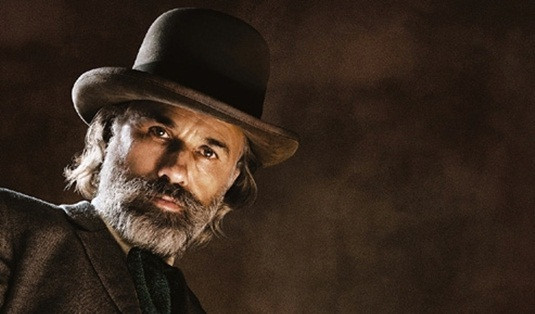 Django-Unchained-Character-Poster-Copy
Django-Unchained-Character-Poster-Copy
Dr. King Schultz, a character brought to life in Quentin Tarantino’s “Django Unchained,” stands out as a figure of notable peculiarity. This distinctiveness isn’t just a feature of the character as written; it’s intrinsically linked to Christoph Waltz’s portrayal. For many viewers, including myself, understanding Schultz is almost inseparable from appreciating Waltz’s performance. Waltz, prior to “Django Unchained,” had already captivated audiences with his Oscar-winning role in Tarantino’s “Inglourious Basterds,” establishing himself as a master of nuanced and often eccentric characters. The introduction of Doctor King Schultz, marked by his flamboyant arrival in a stagecoach adorned with a bouncing giant molar, immediately signals an unconventional and compelling narrative journey.
Doctor King Schultz: An Unconventional Bounty Hunter with a Moral Compass
From his initial scenes, Doctor King Schultz is clearly positioned as a staunch opponent of slavery. The film’s opening depicts brutal slave traders, yet Schultz’s arrival disrupts this grim tableau. He is presented as distinctly civilized in stark contrast to the crude slave catchers. His sophisticated language and demeanor set him apart, hinting at his capacity to liberate Django. Indeed, Doctor King Schultz is pivotal in freeing Django, both physically and mentally. It could even be argued that Schultz himself undergoes a form of liberation throughout the film, a journey that culminates tragically in his demise.
A Peculiar Presence in the Old West
Even without Django, Doctor King Schultz would have been an anomaly in the 1850s American South. His striking stagecoach with the molar, his refined attire, and his articulate speech would have drawn attention wherever he went. The film doesn’t explicitly detail a backstory of hardship that shaped his eccentric confidence, yet Schultz navigates various towns with apparent ease, suggesting an inherent self-assurance.
Cultural Interpretations of Doctor King Schultz
A colleague once pointed out a subtle yet potentially revealing moment in Schultz’s interactions with Django. During a scene where they share a beer, Schultz reportedly “ticked” at Django for placing his hat on the table, a gesture likened to how he might address his horse. While this observation offers a lens of racial dynamics, another interpretation arises from a broader cultural perspective.
Across numerous cultures, offering water or hospitality to a stranger is a fundamental gesture of welcome. This custom is prevalent from Asia to Africa and even within the United States. Extending this courtesy, particularly sharing food or drink at a table, signifies equality and acceptance. In this light, Schultz’s invitation for Django to join him for a beer could be seen as initiating Django into the culture of free men, offering him privileges previously denied. Sharing a drink at the same table becomes a powerful symbol of Schultz acknowledging Django as an equal.
Mutual Liberation: The Unlikely Bond Between Schultz and Django
Doctor King Schultz’s role extends beyond merely aiding Django’s freedom; their association becomes a catalyst for Schultz’s own liberation. In the racially charged climate of 1858, the frequent public appearances of a white man alongside a Black man would have been deeply provocative. In a pre-Civil War America on the brink of explosion, highlighted by the contentious Dred Scott decision – a case triggered by a white slave owner traveling with his enslaved person to free states – their journey was inherently fraught with tension. They inevitably encountered situations mirroring the hostility of the Daughtry, Texas saloon scene.
Doctor King Schultz: Archetype, Not Stereotype
Crucially, both Doctor King Schultz and Django are crafted as archetypes rather than composites of stereotypes. There was no established historical narrative of a formerly enslaved Black man enduring immense hardship to pursue love and vengeance. Similarly, there was no readily available archetype of a white man in that era who vehemently opposed slavery, befriended a former slave, and actively participated in his liberation. Doctor King Schultz appears almost ex nihilo, a character seemingly invented to explore uncharted narrative territory.
Doctor King Schultz and the Burden of White Guilt
The character of Doctor King Schultz inevitably prompts reflection on the concept of white guilt in the context of slavery. When confronting the horrors of slavery, there’s a tendency among some to quickly highlight historical white abolitionists who fought against the institution. This mirrors the problematic deflection of acknowledging the role of some African tribal nations in the slave trade. The danger lies in the potential for a “King Schultz” figure to become a tool for white individuals to alleviate their discomfort with history, while paradoxically, it might inadvertently deepen the sense of historical burden for Black individuals.
Doctor King Schultz could be interpreted as a German-American iteration of John Brown, his abhorrence of slavery manifesting as visceral disgust, notably at the brutal mandingo fight. His climactic act of killing Calvin Candie himself, rather than leaving it to Django, further complicates this interpretation. If Doctor King Schultz is indeed intended to bear the weight of white guilt, this duality presents a complex and intriguing dynamic.
The Asexuality of Doctor King Schultz
Notably absent from Doctor King Schultz’s character is any overt sexuality. His interest in Broomhilda is purely strategic, and no romantic or sexual desire is ever suggested for him. He is, in effect, portrayed as asexual, particularly when contrasted with other prominent male figures in the film. Candie’s plantation is rife with sexual exploitation, and even Big Daddy is depicted with enslaved women clearly present for his sexual gratification. This deliberate asexuality further sets Doctor King Schultz apart, reinforcing his unconventional and somewhat enigmatic nature.
It is important to acknowledge that these analyses, including my own, are subjective interpretations. The richness of characters like Doctor King Schultz lies in their capacity to provoke thought and discussion. Your own perspectives are valuable, and I encourage you to share your thoughts in the comments below.
Keep it uppity and keep it radical, JLL
Share this:
- X
Like Loading…
